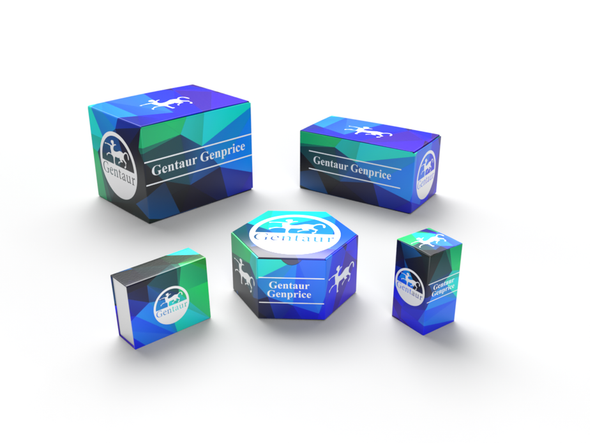Description
PLAC3 Antibody | 6019 | Gentaur UK, US & Europe Distribution
Host: Rabbit
Reactivity: Human, Mouse, Rat
Homology: N/A
Immunogen: PLAC3 antibody was raised against a 15 amino acid synthetic peptide near the amino terminus of human PLAC3.
The immunogen is located within amino acids 450 - 500 of PLAC3.
Research Area: Cancer, Cell Cycle
Tested Application: E, WB, ICC, IF
Application: PLAC3 antibody can be used for detection of PLAC3 by Western blot at 1 μg/mL. Antibody can also be used for immunocytochemistry starting at 10 μg/mL. For immunofluorescence start at 20 μg/mL.
Antibody validated: Western Blot in human samples; Immunocytochemistry in human samples and Immunofluorescence in human samples. All other applications and species not yet tested.
Specificiy: N/A
Positive Control 1: Cat. No. 1201 - HeLa Cell Lysate
Positive Control 2: Cat. No. 17-001 - HeLa Cell Slide
Positive Control 3: N/A
Positive Control 4: N/A
Positive Control 5: N/A
Positive Control 6: N/A
Molecular Weight: N/A
Validation: N/A
Isoform: N/A
Purification: PLAC3 Antibody is affinity chromatography purified via peptide column.
Clonality: Polyclonal
Clone: N/A
Isotype: IgG
Conjugate: Unconjugated
Physical State: Liquid
Buffer: PLAC3 Antibody is supplied in PBS containing 0.02% sodium azide.
Concentration: 1 mg/mL
Storage Condition: PLAC3 antibody can be stored at 4˚C for three months and -20˚C, stable for up to one year. As with all antibodies care should be taken to avoid repeated freeze thaw cycles. Antibodies should not be exposed to prolonged high temperatures.
Alternate Name: PLAC3 Antibody: PAPPE, PLAC3, PAPP-E, PAPP-A2, Pappalysin-2, Pregnancy-associated plasma protein A2
User Note: Optimal dilutions for each application to be determined by the researcher.
BACKGROUND: PLAC3 Antibody: PLAC3 (placenta-specific protein 3) , also known as PAPP-A2, is a metalloproteinase that cleaves the insulin-like growth factor-binding protein (IGFBP) -5 in a IGF-independent fashion. It has been suggested that the cleavage of IGFBP-5 and to a lesser extent IGFBP-3 produced in the maternal decidua promotes feto-placental growth. Recent studies have shown elevated levels of PLAC3 in hypertensive disorders of pregnancy including preeclampsia and HELLP (hemolysis, elevated liver enzymes, and low platelets) syndrome.






